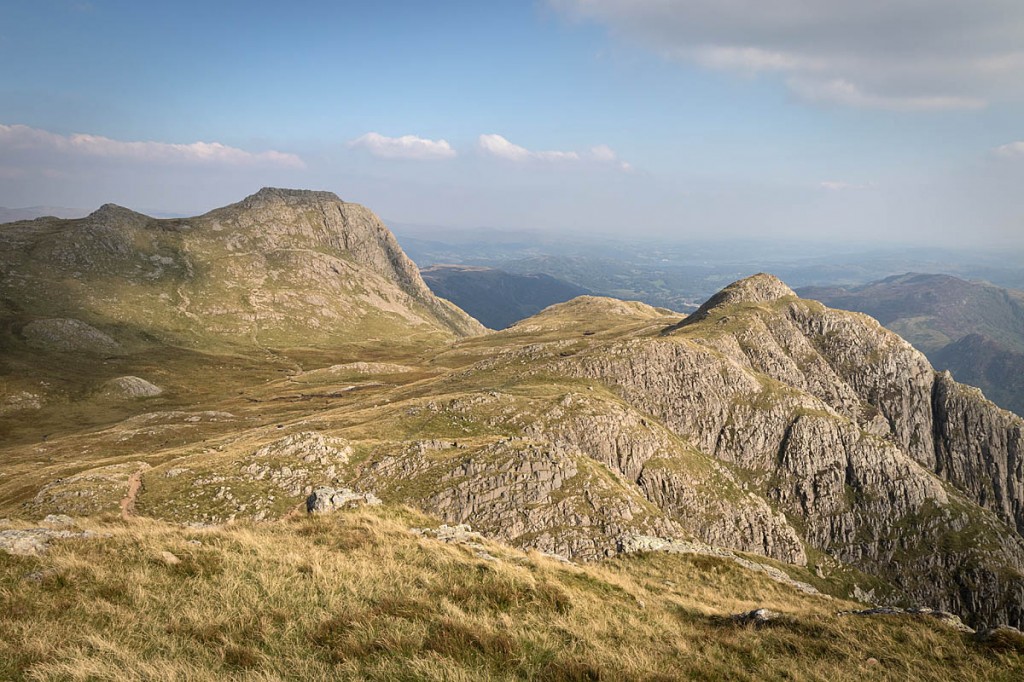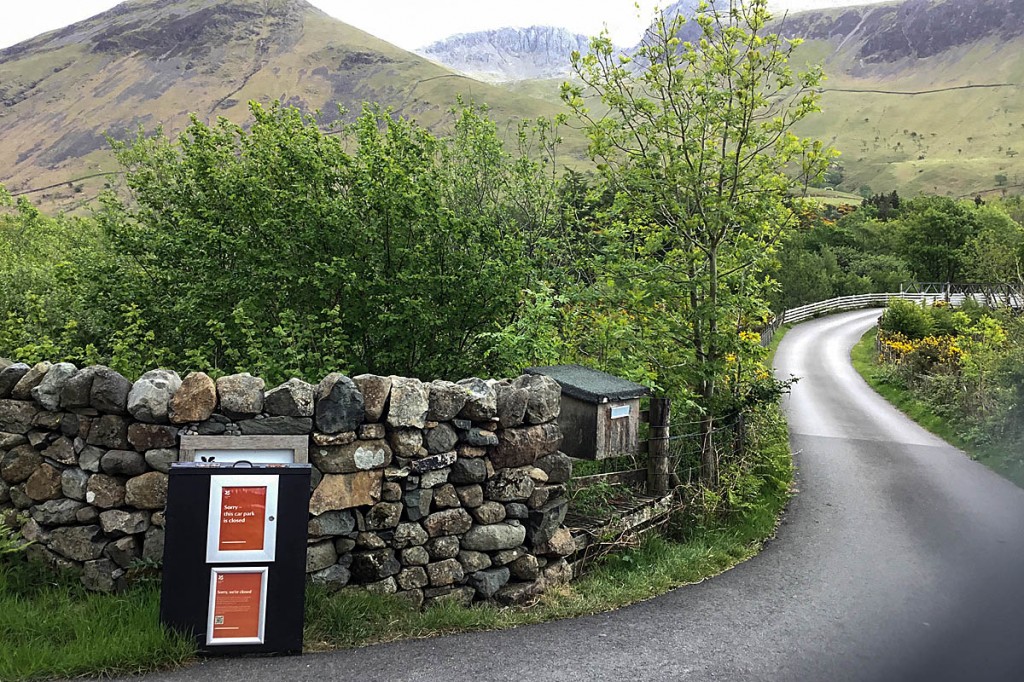Mountain rescuers in the Lake District have appealed to outdoor enthusiasts to stay off the area’s high fells when lockdown restrictions are eased.
The umbrella body for Cumbria’s 12 volunteer rescue teams said it is expecting a surge in visitors from Wednesday, and subsequent problems for rescuers and Lakeland communities.
It pleaded with visitors to show consideration and head to open spaces but not the national park’s mountains.
Richard Warren, chair of the Lake District Search and Mountain Rescue Association, said there had only been seven calls for help in the seven weeks since lockdown began, compared with 70 in the same period last year.
“We cannot stress enough the importance of staying off the high fells,” he said.
“Apart from helping to protect our volunteers from the risk of Covid-19 infection from a casualty, or indeed a fellow team member who is not showing symptoms, it helps reduce the workload on our NHS.
He said the drop in callout numbers equated to almost 50 fewer ambulances and 50 fewer casualties requiring NHS treatment in A&E departments. “This shows the real value of your help in saying off the high fells so a big thank you for your consideration and kindness.
“But from tomorrow we are anticipating real problems for our volunteer teams and our communities. We, like every one of our Cumbrian partners, are expecting a surge of visitors to the Lakes, many not fell-fit and wanting to climb the mountains, or hit those mountain bike trials.”
He pointed out Cumbria has one of the highest infection rates in the country and rescuers cannot afford to have team members infected.
“One team member becoming infected after a rescue can result in one of our mountain rescue teams quarantined for 14 days. The impact on our response times will therefore be significant as the numbers of on call-volunteers diminish, many being health care professionals.
“The government’s new slogan is Be Alert and our Prime Minister asks everyone to apply common sense and be kind.
“Be alert to the risks you are placing on yourself and our volunteers. Be alert to the longer time it will take for teams to get help to you. Be alert that we have limited quantities of personal protective equipment. Be alert that we must decontaminate our equipment, vehicles and clothes afterwards. Be alert that Cumbria’s infrastructure is not ready to cope with a surge of visitors.
“So very much be alert’ but also be kind.
“Be kind to our volunteers and our emergency services, be kind to our rural communities and be kind to our farmers.”
The Lake District National Park Authority chief executive Richard Leafe has urged people not to rush back to the area.
Responding to Boris Johnson’s announcement of the easing of restrictions in England for travel to exercise, he said: “We know that many will be keen to visit the Lake District.
“Our mountain rescue teams are made up of volunteers, many of whom work in the NHS and other frontline professions, so we cannot afford to put unnecessary pressure on them.
“So for now, we’re asking people not to rush back to the Lake District; help protect our communities, the fells will still be here when this passes.”
The lifting of restrictions on travelling for exercise apply only in England, and not in Scotland, Northern Ireland or Wales.


Peter Sullivan
13 May 2020Misguided advice and not based on a fair appraisal of all relevant factors, but based on excessive fear. That's understandable after 8 weeks of the government telling people to be scared, while not far away, people have been sitting in cafes and bars and their country, one with the same population density, doesn't have a higher infection or death rate.
You will not reduce deaths or illness at all by discouraging people to stay off the fells. The NHS is not overloaded. If you think it is, take a look and you will find no news or evidence that it now is. In fact, most ICUs have never been overloaded.
If you consult the NHS trust media team, you'll find out that there are many factors involved in why the county ostensibly shows a higher infection rate. Most relate to the methods used to gather and collate the data.
There are already millions of asymptomatic carriers in the UK. The small percentage who are going show symptoms and become ill will do so, regardless, unless we have permanent lockdown. Your team members are only going to avoid potential infection if they isolate long term. They could easily get the virus from others they come into contact with in their everyday life. So are the Mountain Rescue and many residents going to try to discourage visitors and walkers for months, years? Why will six months from now be any different?
The only way to improve things is via herd immunity, or through a vaccine. A vaccine may not be possible. But if it is, it won't arrive for over a year. Do you intend to discourage visitors and destroy the livelihoods of many Lake District residents for over a year?
I'll leave you with this: In 1968, 80,000 people in the UK died of flu and flu-related complications. No lockdown, no being told to stay off the fells. Covid-19 is not flu, but flu has caused far more deaths in the past than Covid-19 will.
Peter Sullivan
13 May 2020Misguided advice and not based on a fair appraisal of all relevant factors, but based on excessive fear. That's understandable after 8 weeks of the government telling people to be scared, while not far away, people have been sitting in cafes and bars and their country, one with the same population density as ours, doesn't have a higher infection or death rate.
You will not reduce deaths or illness at all by discouraging people to stay off the fells. The NHS is not overloaded. If you think it is, take a look and you will find no news or evidence that it now is. In fact, most ICUs have never been overloaded.
If you consult the NHS trust media team, you'll find out that there are many factors involved in why the county ostensibly shows a higher infection rate. Most relate to the methods used to gather and collate the data.
There are already millions of asymptomatic carriers in the UK. The small percentage who are going show symptoms and become ill will do so, regardless, unless we have permanent lockdown. Your team members are only going to avoid potential infection if they isolate long term. They could easily get the virus from others they come into contact with in their everyday life. So are the Mountain Rescue and many residents going to try to discourage visitors and walkers for months, years? Why will six months from now be any different?
The only way to improve things is via herd immunity, or through a vaccine. A vaccine may not be possible. But if it is, it won't arrive for over a year. Do you intend to discourage visitors and destroy the livelihoods of many Lake District residents for over a year?
I'll leave you with this: In 1968, 80,000 people in the UK died of flu and flu-related complications. No lockdown, no being told to stay off the fells. Covid-19 is not flu, but flu has caused far more deaths in the past than Covid-19 will.
Matt Dalby
13 May 2020Excellent comments Peter, I'll just add one more point. Almost every other virus that is transmitted via airborne particles, e.g. colds and flu, has much lower rates of transmission in summer due to increased heat and UV light. Although it's true that this hasn't been proven for Covid that's only because it wasn't around last summer, it would be unique among viruses if it didn't show similar reductions in transmission. Also wind will rapidly disperse virus particles outdoors, so the risk of passing it on while hillwalking, even if you need rescuing will be minute. It's about time the Government gave us all the facts and stopped relying on unproven models from a select group of scientists.
Fred Scuttle
14 May 2020In the meantime, all the Lakes tourist related businesses that could operate and open up with social distancing practices are going to the wall..... Just going to get a KFC/McDonald's for my lunch now then nipping to B&Q then the garden centre later. I'll probably get a takeaway for dinner tonight and grab a nice bottle of red on the way home.......... I do get it but this isn't going away anytime soon and we all have to adapt...
Ex Rescuer
14 May 2020I've said it before; I'll say it again. MR teams are not there to police the fells. Their opinion is just that; an opinion. If they want to avoid the risk of infection (and I would if I were still a team member) they do not have to attend a call out. As individuals and teams thst is absolutely their right. MR is not a statutory emergency service. If they simply said to people, "We are stood down for the duration and will not be able to rescue you," people would have to accept responsibility for their own actions and the consequences of them. I've been on expeditions to parts of the world where there is no realistic possibility of rescue. It focuses the mind!
Fred Scuttle
15 May 2020Agreed, the Government had said that this form off exercise is now allowed. The English National Parks (except Yorkshire) are unilaterally going against government advice. Is this acceptable?